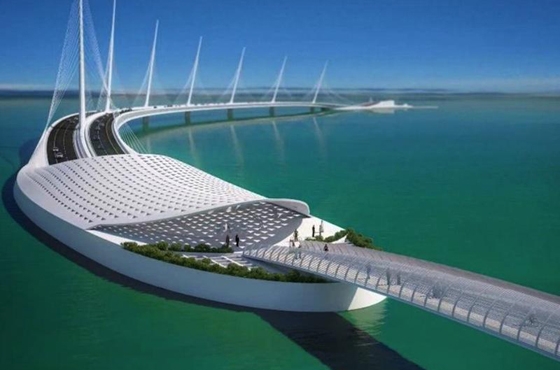Qatar has revealed the first major delay to its massive infrastructure program supposed to be completed in time for the 2022 FIFA World Cup.
The $12 billion Sharq crossing project, comprising three bridges interconnected by subsea tunnels, is not included in the government's recently released priority list for the next seven years, according to MEED, a business intelligence publication that tracks projects.
Designed by Spain's Santiago Calatrava, the crossing includes three bridges spanning between 600 meters and 1,310 meters, linking Doha's new Hamad International airport with the city's cultural district of Katara in the north and the central business area of West Bay.
One of the most ambitious engineering projects in the region, it was expected to be capable of handling 6000 vehicles an hour and offer some relief to commuters on the Corniche, while also being an iconic attraction.
Construction was to start this year and be completed by 2021, Nasser Ali Al Mawlawi, the president of Qatar's Public Works Authority, Ashghal, said when he announced the project in December 2013.
It is not clear why the project has been postponed, and whether construction will start before 2022 and be entirely delayed until after the World Cup.
Qatar has announced $140 billion worth of projects including roads, stadiums, the recently opened airport, a new port and residential and retail developments in preparation for the international tournament.
However, the scope of the works, which has seen tens of thousands of expat workers move to the country monthly, has put significant pressure on the construction industry.
Qatar is the 16th most expensive construction market in the world and the most expensive in the Gulf, according to an ARCADIS International Construction Cost study released last week.
At the same time, low oil prices have put a huge dent in the country's revenues.
Last year, Qatar's World Cup organizing committee said it would reduce the number of stadiums it planned to build for the event from 12 to eight.
Arabian Business
23 January






















































